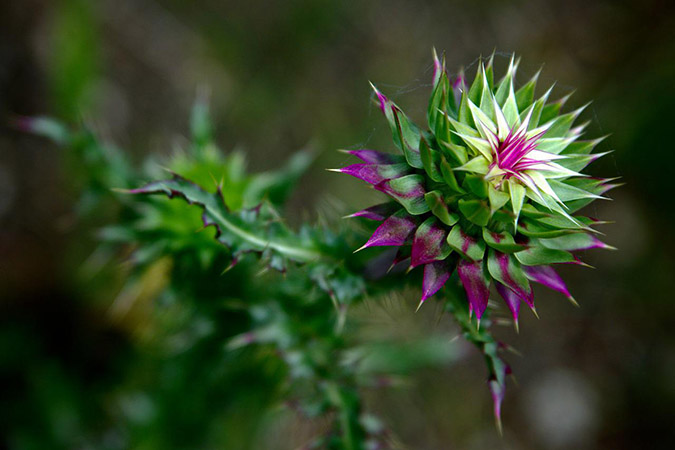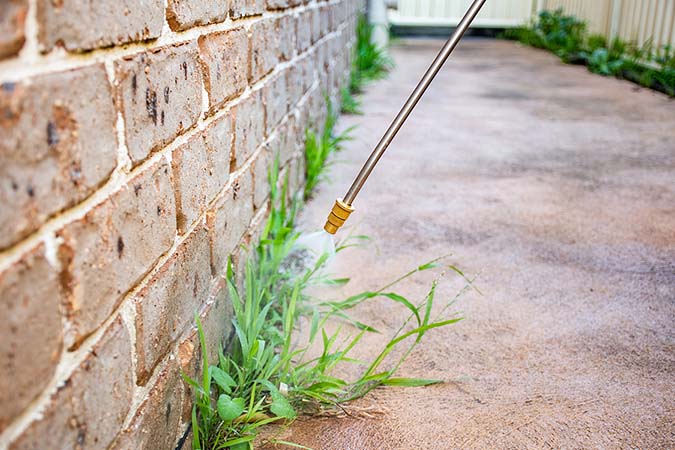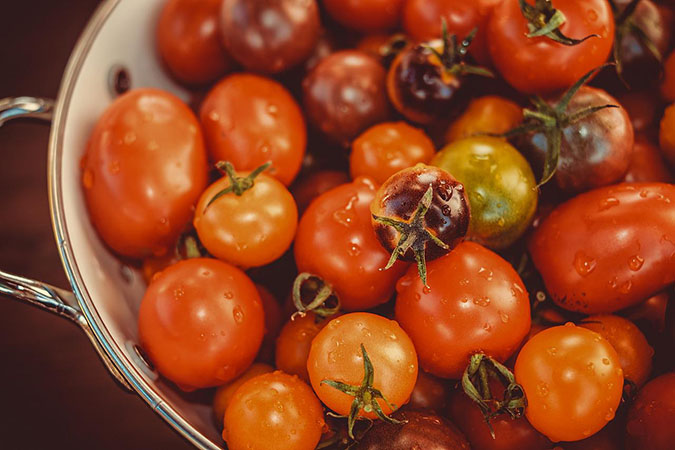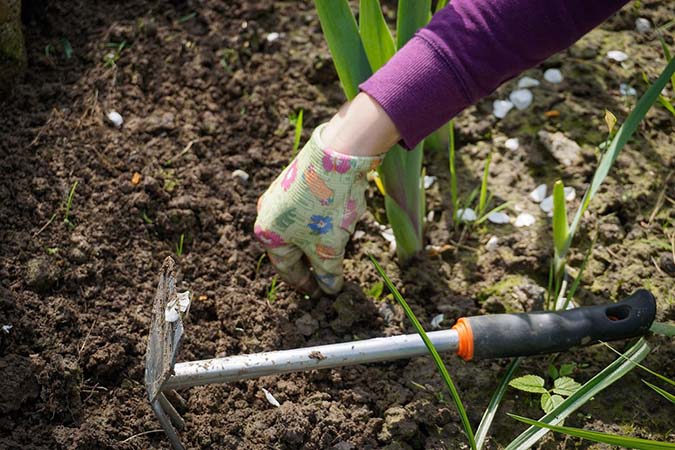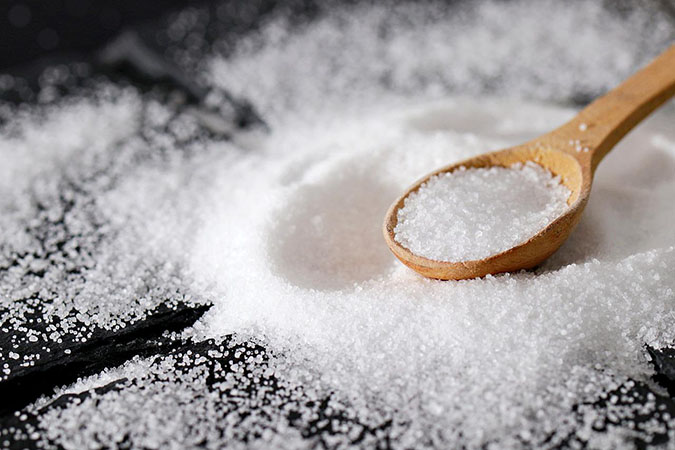Is your weed killer dangerous? Here’s how to know, what to do about it, and where to look for safer herbicides.
Is Your Weed Killer Dangerous? How to Choose Safer Herbicides
We’ve all been there: a garden full of diligently cultivated vegetables and flowers suddenly overrun with weeds. The easiest solution is usually to take our weed killer and clear up any and all problem plants with a few quick sprays.
Unfortunately, weed killer harms more than just plants.
You May Also Enjoy:
Herbicides pose significant risks to our personal health and safety, and may even go so far as to affect the safety of our homegrown foods. This article will walk you through the potential dangers of weed killers and provide tips on safe alternatives.
What’s in Our Weed Killers?
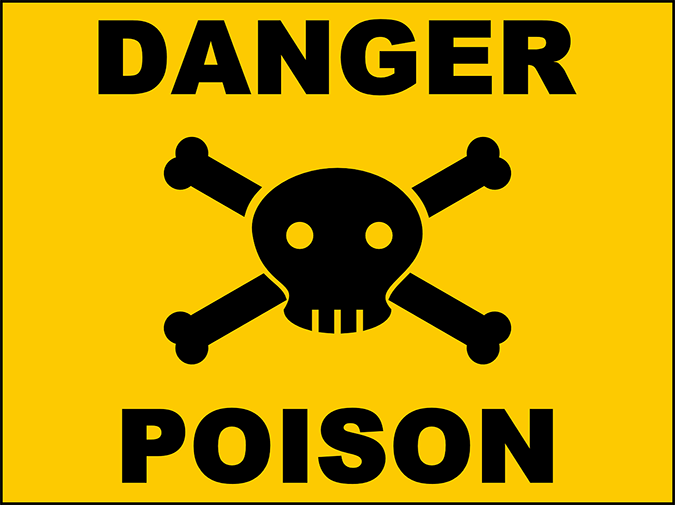
Image by OpenClipart-Vectors from Pixabay
Weed killer, by design, is a poison. Just like pesticides, biocides, or any other substance ending in -cide, herbicides are made up of harmful chemicals that pose a severe risk to living organisms through surface-level contact. The chemicals that make up weed killers are designed to stop photosynthesis and cell division in plants, but the toxic chemicals in these sprays are typically non-selective, and can act as noxious substances for any living organism—us included.
You May Also Enjoy:
“Holistic Doctor Explains: Why You Should Cultivate Weeds”
Even skin contact with some weed killers can be harmful, leading to severe long-term health concerns. Most popular commercial weed killers contain the following chemicals:
- Glyphosate
- Atrazine
- 2, 4-D
- Dicamba
Effects of Weed Killers on Human Health

Image by Sabrina Eickhoff from Pixabay
The chemicals in weed killers are generally intended to be harmful solely to plants, targeting plant cells and photosynthetic processes. However, many herbicide chemicals affect cellular growth, lipids, and nutrient uptake, which can damage animal cells as much as they do plant cells.
Glyphosate is the most commonly used substance in weed killers due to its effectiveness against many different types of weeds and its relatively low toxicity to animals. Its low toxicity refers to it being reasonably safe to ingest in low doses, allowing for safe consumption when residual glyphosate is left on crops. However, this does not mean that glyphosate is safe for long-term skin contact or consumption.
You May Also Enjoy:
“Turn Your Weeds Into Fertilizer!”
Recent studies are finding that glyphosate and other weed killer ingredients may be far more harmful than originally thought, with many being extremely carcinogenic. Round-up, a common commercial weed killer and one that has glyphosate as its primary ingredient, has faced thousands of legal claims linking frequent use of the herbicide to non-Hodgkin’s lymphoma.
On top of increased cancer risks, regularly coming into contact with weed killer may lead to:
- Parkinson’s disease
- Damage to kidneys, and kidney failure in extreme cases
- Damage to the heart and to heart rates
- Damage to lungs when inhaled
- Headaches
- Fatigue
Contact With Chemicals in Your Garden
When we spot-treat our gardens, we typically only spray the weeds themselves and carefully avoid our flowers and vegetables. However, weed killers can spread farther than we intend, especially with liquid sprays. Although we can’t see it, the chemicals in our weed killers get onto other plants and our skin.
For those of us who grow our own vegetables, weed killers can get into our food when they leach into the soil, water, and leaves.
Even when we thoroughly wash off our vegetables, the plants may contain trace amounts of herbicides that make their way onto our dinner plates. Many of these chemicals degrade slowly in plants, leading to a buildup in many of our vegetables. Depending on how often you treat your garden, these trace amounts can accumulate over time, leading to high levels of consumption.
You May Also Enjoy:
“Sheet Mulching: Build Soil, Thwart Weeds, and Make Your Garden Fertile”
Not only does this pose a risk to our health, but herbicides that leach into soils and waters can have far-reaching effects on the environment, leading to chemicals seeping into our waterways and affecting our natural ecosystems.
We also come into contact with the toxic chemicals in herbicides through skin contact. Studies suggest that this is even more harmful than consumption, especially for those who regularly use weed killers. When we spray our gardens without gloves or leg-coverings, long-term contact with these chemicals can be severely detrimental.
Safer Alternatives to Commercial Weed Killers
Those of us with gardens know how difficult weed control can be without weed killers, so we understand how important it is to find a safe alternative to commercial weed killers without dropping herbicides entirely. Whenever possible, weed by hand. It may be tedious at times, but avoiding toxic weed killers can be lifesaving. Otherwise, look into some safer alternatives.
4 Brands to Avoid
The first step in finding alternatives is to look at the ingredients list of your weed killer. Avoid brands that use known carcinogenic chemicals, including:
- Round-up
- Rodeo
- Eraser
- Agrisel
If your weed killer does contain glyphosate or any other harmful substances and you choose to use it rather than discard it safely, make sure that you wear a mask, gloves, and leg coverings when spraying, and avoid the sprayed area for at least 4 hours afterward. If your skin comes into contact with the herbicide, thoroughly wash the affected area with soap and water.
You May Also Enjoy:
15+ Ways to Use Cleavers—From Dinner to Detox
“19 Benefits of Hibiscus: Blood Pressure Regulator, Cancer Fighter, Liver Protector, and Much More!”
“12 Uses for Rose Petals — From the Kitchen to the Boudoir (With Recipes)”
Make sure you purchase products that have clear labeling that thoroughly describes all ingredients and explains the necessary safety measures to be taken if you come into contact with or accidentally ingest the herbicide. Following all safety and personal-protection measures included in the instructions is a crucial part of keeping yourself safe.
Safer Herbicides You Can DIY
Alternatively, look into nontoxic weed killers you can DIY using common ingredients. These can include:
- Vinegar and citric acids
- Salt
- Dish detergent
- Herbal soaps
Look for acidic, salty, or soapy substances that suffocate the weeds or break down their cellular tissue, and experiment with mixing these substances. Salt and vinegar mixtures can be a potent alternative that quickly dries out leaves and stems, and soapy and oily mixtures break down natural barriers on the plants.
To avoid toxic chemicals in your garden, apply any of these alternatives directly onto the weeds. These substances are far less harmful to you and your gardens, and are readily available to most of us. Just be sure to apply them in small amounts to avoid damaging your soils, and apply them when the weather is dry to keep them from washing away and spreading to unwanted areas in your garden.
What Do You Think?
What’s your favorite natural weed killer—DIY or otherwise? Share your recipes and experiences in the comments below!
_________________
The Grow Network is a participant in the Amazon Services LLC Associates Program, an affiliate program designed to provide a means for our team to earn fees for recommending our favorite products! We may earn a small commission, at no additional cost to you, should you purchase an item after clicking one of our links. Thanks for supporting TGN!

The Grow Network is a global network of people who produce their own food and medicine. We’re the coolest bunch of backyard researchers on Earth! We’re constantly sharing, discovering, and working together to test new paths for sustainable living—while reconnecting with the “old ways” that are slipping away in our modern world. We value soil, water, sunlight, simplicity, sustainability, usefulness, and freedom. We strive to produce, prepare, and preserve our own food and medicine, and we hope you do, too!
